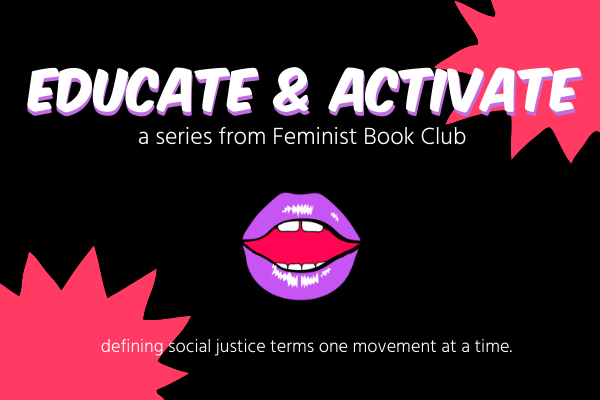Feminist Book Club blog contributors are working together to create posts as an “Educate & Activate” series. We will define a term or movement, provide historical context, and give you additional resources to learn more. We believe that an educated populace can be better activists, accomplices and co-conspirators. It is important to note that these are meant to be brief descriptions and not inclusive or exhaustive of all resources. We urge you to continue being curious, and continue learning more.
Definition
According to Merriam-Webster, privilege is “a right or immunity granted as a peculiar benefit, advantage, or favor.” Within the context of social justice-minded conversations, privilege is about the various ways in which society accommodates someone, conferring upon them a number of unearned advantages based upon various aspects of their identity, including race, gender, sex, (dis)ability, sexuality, class, and body type. These advantages are often invisible to those who have them.
First Usage
While the concept of privilege was touched upon by the sociologist W.E.B. Du Bois in the early 1900s in his musings about class and racism, the word itself didn’t come into common use until the civil-rights era.
History
In 1935, in his Black Reconstruction in America, Du Bois wrote about the “psychological wage” that allowed poor whites to feel superior to poor blacks.
Later on, during the Civil Rights era, activists talked about “white-skin privilege.” For example, in 1963, in response to requests that he delay civil rights protests, Martin Luther King Jr., produced “Letter from a Birmingham Jail,” in which he wrote that these protests could not be delayed because, “Lamentably, it is an historical fact that privileged groups seldom give up their privileges voluntarily.”
Still, the concept of privilege — and in particular white privilege — did not become widely used until the late ’80s, when the women’s studies scholar Peggy McIntosh began to write about it. In 1988, she wrote the paper called “White Privilege: Unpacking the Invisible Knapsack,” in which she began to interrogate her own privilege as a white woman.
“In proportion as my racial group was being made confident, comfortable, and oblivious, other groups were likely being made unconfident, uncomfortable, and alienated,” she wrote. “Whiteness protected me from many kinds of hostility, distress, and violence, which I was being subtly trained to visit, in turn, upon people of color.”
Since then, McIntosh’s essay has been widely referenced in further discussions about privilege.
Resources for Further Education
To learn more about privilege, consider looking into the following resources:
So You Want to Talk About Race by Ijeoma Oluo
“What Is White Privilege, Really?” by Cory Collins via Teaching Tolerance
White Like Me by Tim Wise (both the book and the documentary)
“On a Plate” by Toby Morris
“Sometimes You’re a Caterpillar” by Franchesca Ramsey and Kat Blaque


